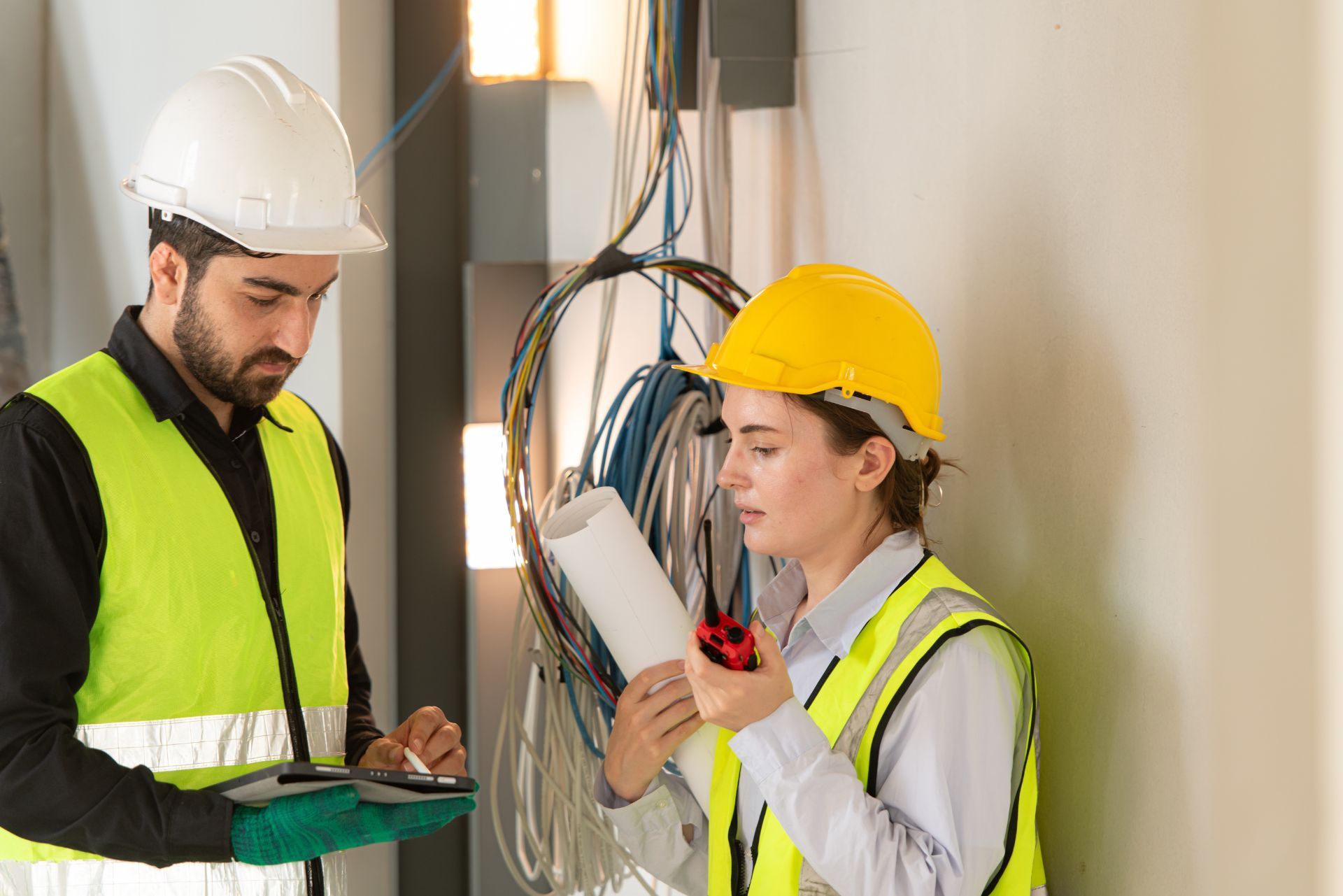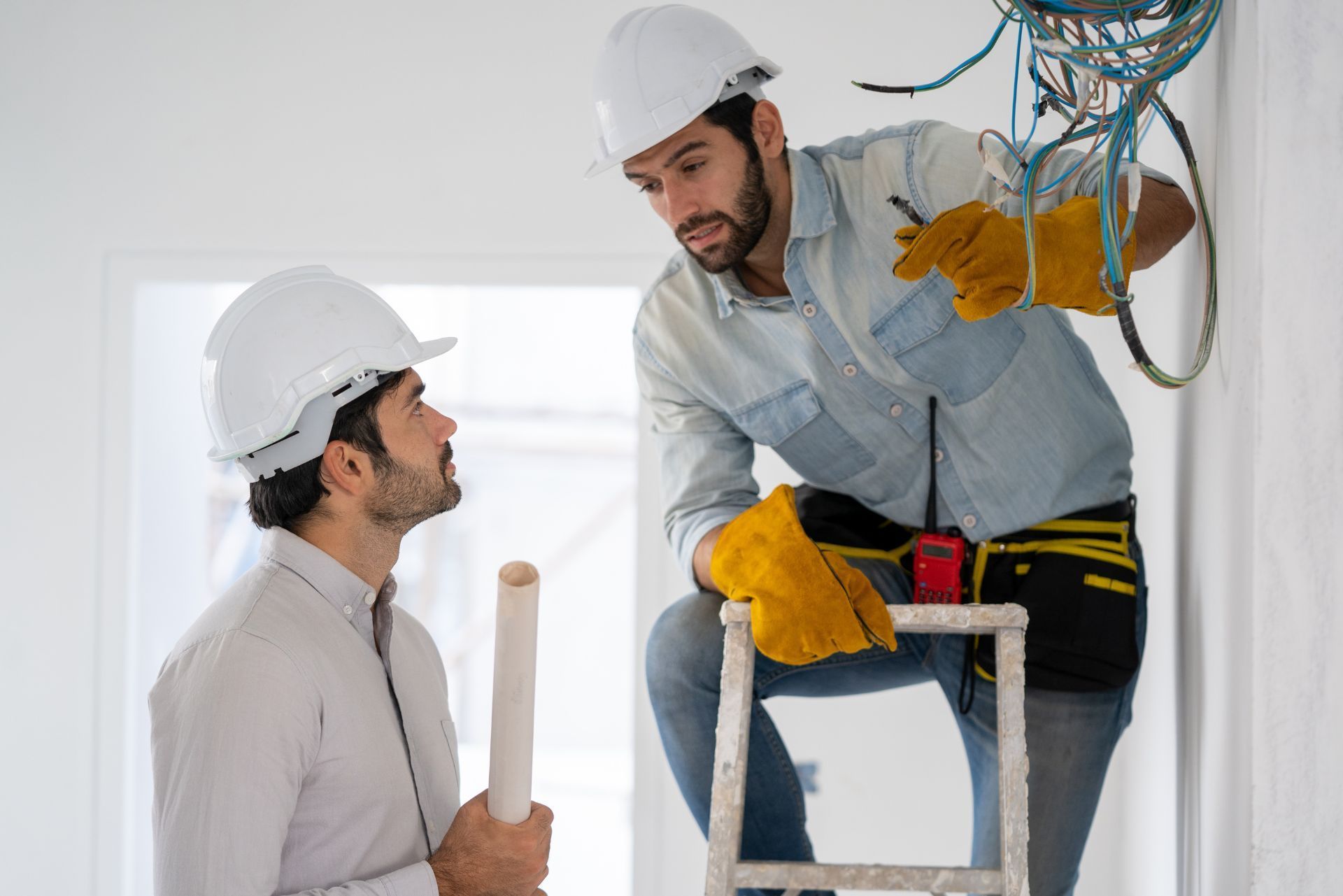Top 3 Recommended Policies

In the fast-paced world of technology, the demand for reliable internet and cable services has surged. Florida, known for its vibrant communities and diverse population, is no exception. As a wifi and cable installer in this sunny state, understanding the importance of insurance is crucial. This article delves into everything you need to know about wifi and cable installers insurance in Florida, ensuring you can protect your business and provide peace of mind to your clients.
Understanding the Basics of Insurance for Installers
Insurance is a fundamental aspect of running any business, especially for wifi and cable installers. It serves as a safety net, protecting against unforeseen events that could lead to financial loss. In Florida, where the weather can be unpredictable and the market competitive, having the right insurance coverage is essential.
Types of Insurance Coverage
There are several types of insurance coverage that wifi and cable installers should consider. Each type serves a specific purpose and helps mitigate risks associated with the industry.
- General Liability Insurance: This is the most common type of insurance for contractors. It protects against claims of bodily injury or property damage that may occur during the installation process.
- Professional Liability Insurance: Also known as errors and omissions insurance, this coverage protects against claims of negligence or inadequate work. It is especially important for installers who provide consultations or design services.
- Commercial Auto Insurance: If vehicles are used for business purposes, this insurance is necessary. It covers damages resulting from accidents while using company vehicles.
Why Insurance is Essential for Installers
Having the right insurance is not just a legal requirement; it is a crucial aspect of maintaining a reputable business. For wifi and cable installers, the risks can be significant. From accidents on job sites to equipment damage, the potential for loss is ever-present.
Moreover, clients often seek assurance that their chosen service providers are adequately insured. This not only enhances credibility but also builds trust. In a competitive market, having comprehensive insurance can set a business apart from its competitors.
In addition to the standard coverage options, installers may also want to consider specialized insurance products tailored to their unique needs. For instance, equipment insurance can protect against theft or damage to expensive tools and technology required for installations. Given the rapid advancements in technology, having coverage for the latest devices can ensure that installers remain competitive and well-equipped to handle any job. Furthermore, business interruption insurance can provide financial support in the event of a disaster that temporarily halts operations, allowing installers to recover without facing crippling losses.
Understanding the nuances of insurance policies is equally important. Installers should take the time to read through their policies thoroughly, ensuring they understand the terms, conditions, and exclusions. Engaging with an insurance broker who specializes in contractor insurance can provide invaluable insights and help tailor coverage to specific business needs. This proactive approach not only safeguards the business but also ensures that installers can focus on delivering quality service to their clients without the looming worry of potential liabilities.

Legal Requirements for Florida Installers
In Florida, specific legal requirements govern the insurance needs of contractors, including wifi and cable installers. Understanding these regulations is vital for compliance and protection.
Licensing and Insurance Requirements
Florida requires all contractors to obtain a license before operating. This includes providing proof of insurance. The state mandates that general liability insurance must have a minimum coverage amount, which varies based on the type of work being performed.
Additionally, installers should be aware of local regulations that may impose further requirements. For instance, certain municipalities may have stricter guidelines regarding insurance coverage levels or additional types of insurance. This could include workers' compensation insurance, which is particularly crucial for contractors who employ others. Ensuring compliance with both state and local regulations not only safeguards the installer but also builds trust with clients who expect adherence to legal standards.
Consequences of Not Having Insurance
Operating without the required insurance can lead to severe consequences. Not only can it result in hefty fines from regulatory bodies, but it can also expose the business to significant financial risks. In the event of an accident or claim, the installer may be held personally liable, which could jeopardize personal assets.
Furthermore, lacking insurance can deter potential clients. Many homeowners and businesses prefer to hire insured contractors, viewing it as a sign of professionalism and reliability. In a competitive market, having the right insurance can be a distinguishing factor that sets one installer apart from another. Additionally, some clients may even require proof of insurance before signing a contract, making it essential for installers to maintain valid coverage to secure jobs. This not only protects the installer but also reassures clients that they are choosing a responsible and trustworthy professional for their installation needs.
Choosing the Right Insurance Provider
Selecting the right insurance provider is a critical step in securing adequate coverage. With numerous options available, it is essential to conduct thorough research to find a provider that meets the specific needs of wifi and cable installers.
Factors to Consider
When evaluating potential insurance providers, several factors should be taken into account:
- Reputation: Look for providers with a solid reputation in the industry. Online reviews, testimonials, and referrals can provide valuable insights.
- Coverage Options: Ensure that the provider offers coverage tailored to the unique risks faced by wifi and cable installers.
- Customer Service: Good customer service is essential. A responsive and knowledgeable agent can make the process of obtaining and managing insurance much smoother.
Getting Quotes and Comparing Policies
Once potential providers have been identified, obtaining quotes is the next step. It is advisable to request quotes from multiple insurers to compare coverage options and premiums. This process can help identify the best value for the coverage needed.
When comparing policies, pay attention to the details. Look beyond the premium costs and consider factors such as deductibles, coverage limits, and exclusions. Understanding these details can prevent unpleasant surprises when filing a claim.
Additionally, consider the financial stability of the insurance provider. A company with a strong financial rating is more likely to be able to pay claims promptly and efficiently. Resources such as A.M. Best or Standard & Poor's can provide insights into the financial health of insurance companies, helping you make a more informed decision.
Furthermore, it may be beneficial to inquire about any discounts or bundled services that the provider offers. Many insurance companies provide lower rates for clients who combine multiple types of coverage, such as liability and property insurance. This not only helps in reducing costs but also simplifies the management of your insurance portfolio, allowing for a more streamlined approach to your coverage needs.
Cost of Insurance for Wifi and Cable Installers
The cost of insurance for wifi and cable installers can vary significantly based on several factors. Understanding these factors can help business owners budget effectively and find affordable coverage.
Factors Influencing Insurance Costs
Several elements can influence the cost of insurance premiums:
- Business Size: Larger businesses with more employees and higher revenue may face higher premiums due to increased risk exposure.
- Coverage Amounts: The level of coverage selected will directly impact the cost. Higher coverage limits typically result in higher premiums.
- Claims History: A history of frequent claims can lead to increased premiums. Insurers may view businesses with multiple claims as higher risk.
Average Premiums for Florida Installers
While costs can vary, understanding the average premiums can provide a benchmark for budgeting. On average, general liability insurance for wifi and cable installers in Florida may range from $500 to $1,500 annually, depending on the factors mentioned above. Professional liability insurance may cost an additional $400 to $1,200 per year.
It is essential to obtain personalized quotes to get a more accurate estimate based on specific business circumstances.
In addition to the factors already mentioned, the type of services offered can also play a pivotal role in determining insurance costs. For instance, installers who provide additional services, such as home automation or security system installations, may be viewed as higher risk due to the complexity and potential for errors associated with these installations. This can lead to increased premiums compared to those who solely focus on basic wifi and cable installations. Furthermore, the geographical area of operation can influence rates; urban areas with higher population densities may present more risks, such as increased traffic accidents or theft, which could further drive up insurance costs.
Another important consideration is the choice of insurance provider. Different insurers may have varying underwriting criteria, which can lead to significant differences in premium quotes. Some companies may specialize in coverage for tech-related businesses and offer tailored policies that could provide better value for installers. Additionally, taking steps to mitigate risks, such as implementing safety training for employees or utilizing advanced technology to streamline installations, can sometimes lead to discounts on premiums. Business owners should actively seek out these opportunities to lower their insurance costs while still maintaining adequate coverage.
Common Insurance Claims for Installers
Understanding the types of claims that are commonly filed can help wifi and cable installers prepare for potential risks. Being aware of these claims can also guide insurance decisions and coverage selections.
Types of Claims
Some of the most common claims faced by wifi and cable installers include:
- Property Damage: Accidental damage to a client's property during installation can lead to claims. This could include damaging walls, floors, or existing electrical systems.
- Bodily Injury: Accidents resulting in injury to clients or employees during the installation process can result in liability claims.
- Equipment Theft or Damage: Installers often use expensive tools and equipment. Theft or damage to this equipment can lead to significant financial loss.
Preventing Claims
While insurance is essential, taking proactive steps to prevent claims can also be beneficial. Implementing safety protocols, conducting thorough training for employees, and maintaining equipment can reduce the likelihood of accidents and claims.
Additionally, having clear contracts and communication with clients can help manage expectations and reduce the risk of disputes that may lead to claims.
Furthermore, installers can benefit from regular risk assessments to identify potential hazards in their work environment and address them before they result in claims. This could involve checking the installation site for any pre-existing issues that could complicate the installation process, such as faulty wiring or unstable structures. By being proactive, installers not only protect their business but also enhance their reputation for reliability and professionalism.
Another effective strategy is to invest in comprehensive training programs that cover not only technical skills but also customer service and conflict resolution. Employees who are well-trained in both their craft and interpersonal skills are better equipped to handle challenges on-site, which can significantly reduce the likelihood of incidents that lead to claims. This holistic approach to training fosters a culture of safety and accountability, ultimately benefiting both the installers and their clients.

Conclusion
In the competitive landscape of wifi and cable installation in Florida, having the right insurance coverage is not just a legal obligation; it is a vital component of a successful business strategy. From understanding the various types of insurance to selecting the right provider, every step is crucial in ensuring protection against potential risks.
By investing time in researching and securing adequate insurance, wifi and cable installers can focus on delivering exceptional service to their clients while safeguarding their business interests. In a state known for its growth and technological advancement, being prepared with the right insurance can make all the difference.
Contact Us


